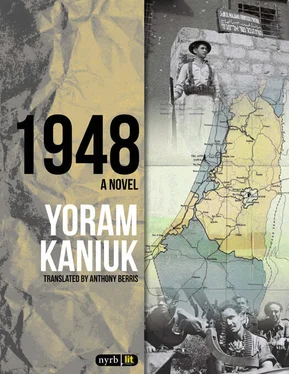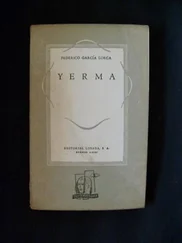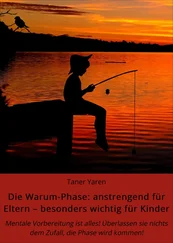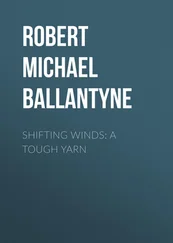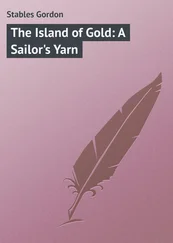They brought his body back here. It was decided that he should be buried in the cemetery close to the Palmach plot, but we didn’t have his papers, we didn’t even know who he was, except for the fact that his name was Kurt. We didn’t know his surname. His passport was forged, with a photograph of an eighty-year-old man, a passport the Haganah gave him when they gave them out for the illegal immigrant ships. They make a hundred like it in an evening and simply stuck in any old photograph. By feel.
She spoke dryly. She said that the record should be mine. Kurt said that your father told him how much his son, that’s you, loves this Bach fugue and that by pure chance, that’s what this record is. He was my beloved.
I, the youth of then, envied her as she uttered the words “my beloved.” I went back to the tent. Perhaps it was hot. Maybe cold. I don’t remember. The guys brought their gramophone and set it up and played the Arab records we’d brought the previous night or maybe in the morning or the afternoon. The records were made of Bakelite and after listening to them they’d smash them on the rocks. Those songs suddenly got on my nerves, I missed something else apart from Abdel Wahab and his trilling, and I asked them to let me play a record I’d been given as a present. Go right ahead, they said.
They lay on the rags that were called beds back then, or knelt on the ground, and as usual tried to imagine the taste of a tomato that N. had described with his terrible talent. I played the record and felt good. It felt like being a child. To be in peace. To be at home with my parents. With the sea. With my friend Amos and our animals, with the anemones in the field below before you get to Hayarkon Street, and with the yellow fire plants by the Muslim graves, by the sea, and quietude came to me.
Back then I thought that by changing two letters of the Hebrew krav , battle, you got kever , grave. And the same Hebrew root gives you morning and test and visit and battle and decay. I sat and listened and replayed the record over and over, with the words playing in my head, until the guys had had enough and said, Yalla , enough already, but I couldn’t stop. They got mad, What’s with you, mama’s boy, enough of your Beethoven, and I said, It’s Bach, and they said, Beethoven, Bach, it’s all the same shit, and I could see they were about to jump me. I grabbed my Thompson, aimed at them, and yelled that if anybody moved I’d shoot, and you already know that I killed a kid so I can definitely do the same to you. With one hand I wound up the gramophone and held the Thompson in the other and played the record a few more times until they fooled me, they came up behind, grabbed me, threw me down, grabbed the record, and threw it to shatter on the rocks. That poor, old, wonderful record from Berlin shattered into smithereens. I got up and went out, I don’t remember where to.
That evening an operation was cancelled and the whole battalion was called to the cowshed basement. That’s where, every now and again, we’d hear greetings from home on a battery-powered radio. We all sat quietly. Dado, David Elazar, who was the best-loved of all the commanders, ordered us to keep quiet. The radio broadcast all kinds of greetings, we were all tense, and then the announcer said: “For Yoram Kaniuk, somewhere in Eretz Yisrael. On your eighteenth birthday your parents send their congratulations and would like us to play the record you loved as a child.” And then, in the deepest silence imaginable, they were forced to listen once more to my little fugue.
That was perhaps the best thing that has ever happened to me on any birthday. It was a sweet revenge. An embrace from my parents and sister.
The battle at Nabi Samwil was one of the bitterest and one of the stupidest in the War of Independence. I was not part of the assault on the hill overlooking the road to Jerusalem — we were sent in four armored vehicles with a Davidka mortar, which sometimes fired too, as a diversion from the rear. We drove in the direction of Beit Iksa, close to the British radar station, on an operation we didn’t exactly know much about. Everything I write now is not completely clear to me. I’d forgotten the battle. For more than thirty years it lay quenched inside me.
One day, thirty years after, I drove in my poor old Simca 1000 to the Sidna Ali beach and gazed at the water and it was beautiful and calm, and below I saw youngsters swimming naked and laughing aloud, and a woman shouted in a foreign language and looked like a dolphin, perhaps she was a volunteer from Finland, and from the water a memory surfaced, as good as new, which had been hidden away inside me and had refused to come out. I looked at it the way you watch a film. I drove home and wrote what I’d remembered. But what I wrote is not necessarily what happened.
I remembered that our commander kept the operation order to himself. I was in the vehicle with the Davidka, which when we fired it made more noise than it caused damage, but it was all we had. On the way we were ambushed. Mines overturned three of the vehicles. We extricated ourselves and took the Davidka and its huge shells. The fourth vehicle wasn’t hit. Gavrush, the driver of the fourth vehicle’s commander and the Harel Brigade’s greatest exponent of the art of driving, managed to turn the vehicle around. We were already under fire and there were wounded. The officer who was in the vehicle said he was going back to Ma’aleh HaHamisha to get help. We told him that there was nobody there who could come because they were all taking part in the big attack with Puza, who we didn’t know had already been killed, and we pleaded with him not to go, but if he was going and leaving us then at least he should tell us what we were supposed to do and take some of the wounded with him. He looked stressed and angry and said that he’s in a hurry to call help, which he would of course find, and can’t stop now and he’ll soon be back with reinforcements. I’m still waiting for him to come back.
We remained in the open under heavy fire. We didn’t know what to do. Did we really take off our shirts to bandage the wounded? Did we really run out of shirts? Were there really crows in the sky dancing like God’s clowns, little bastards that looked like toy Hasidim or converted penguins, lacking the magnificence of an eagle or the vulture that settled deep in the sky and regarded us with contempt, us, the not yet dead. The living were of no interest to it, it swooped down onto a corpse but not onto the wounded.
The crows put on a show, perhaps to entertain the vulture, but it scorned them too, and we’d run out of ammunition and fired the Davidka and the shell fell into the no-man’s-land between us and the enemy and didn’t explode. Where was I exactly? I once asked Uri Bogin, a true hero who died a long time ago and was born in Kfar Malal, and he said we were lying behind terraces. I asked him if he remembered us playing dead and he said he didn’t. He was a strong man. A farmer. The scene I had in my mind wasn’t in his. He was older than me. I asked him if the Arabs didn’t dare to touch the Davidka shell because we used to scratch all kinds of dials on the huge shells, and we’d heard them talking on the radio about an atomic bomb and they waited for the Jordanians to blow it up.
Uri said perhaps that was true but he doesn’t remember exactly if there’d actually been a Davidka shell there. I remembered that there’d been nowhere to run to. The sky above us was vast, spread out, and ugly with all the glints of the screaming crows, and I remember that we played dead because the enemy was above us and could see us, they saw each and every one of us precisely, and we were all lying by ourselves and trying to find cover. I remember that next to me was the friend of my youth, Menachem, who went to school with me, and my mother was his teacher, and I’m not at all sure that he liked me particularly, perhaps because I was a year younger and the son of his teacher and the museum director, but I liked him and we lay there close to each other. Uri said he thinks that Menachem was farther away and that somebody else was lying next to me, and he said I was exposed and didn’t have the sense to find cover and that’s why I think I played dead. The terror in that place was indeed great.
Читать дальше
